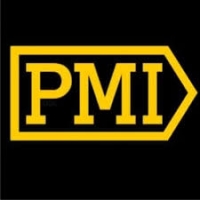The world's largest supply platform for sources of shortages and hard-to-find parts
- Capacitors
- Resistors
- Linear
- Thyristors
-
Transistors
- Transistors - FETs, MOSFETs - Single
- Transistors - FETs, MOSFETs - RF
- Transistors - FETs, MOSFETs - Arrays
- Transistors - IGBTs - Modules
- Transistors - JFETs
- Transistors - IGBTs - Single
- Transistors - Bipolar (BJT) - Single
- Transistors - Bipolar (BJT) - Arrays
- Transistors - Bipolar (BJT) - Single, Pre-Biased
- Transistors - Bipolar (BJT) - RF
- Transistors - Bipolar (BJT) - Arrays, Pre-Biased
- Transistors - Special Purpose
- Clock/Timing
- Data Acquisition
-
Interface
- Interface - I/O Expanders
- Interface - UARTs
- Interface - Specialized
- Interface - Serializers, Deserializers
- Interface - Sensor and Detector Interfaces
- Interface - Sensor, Capacitive Touch
- Interface - Signal Terminators
- Interface - Signal Buffers, Repeaters, Splitters
- Interface - Modules
- Interface - Analog Switches - Special Purpose
- Interface - Analog Switches
- Interface - Filters - Active
- Interface - Telecom
- Interface - Direct Digital Synthesis (DDS)
- Interface - Encoders, Decoders, Converters
- Interface - CODECs
- Interface - Voice Record and Playback
- Interface - Modems - ICs and Modules
- Interface - Drivers, Receivers, Transceivers
-
Embedded
- Embedded - DSP (Digital Signal Processors)
- Embedded - FPGAs (Field Programmable Gate Array)
- Embedded - PLDs (Programmable Logic Device)
- Embedded - FPGAs with Microcontrollers
- Embedded - Microprocessors
- Embedded - Microcontrollers - Application Specific
- Embedded - Microcontrollers
- Embedded - System On Chip (SoC)
- Memory
- Isolators
- Diodes
-
PMIC
- PMIC - AC DC Converters, Offline Switchers
- PMIC - LED Drivers
- PMIC - OR Controllers, Ideal Diodes
- PMIC - PFC (Power Factor Correction)
- PMIC - RMS to DC Converters
- PMIC - V/F and F/V Converters
- PMIC - Power Over Ethernet (PoE) Controllers
- PMIC - Full, Half-Bridge Drivers
- PMIC - Display Drivers
- PMIC - Gate Drivers
- PMIC - Laser Drivers
- PMIC - Hot Swap Controllers
- PMIC - Thermal Management
- PMIC - Lighting, Ballast Controllers
- PMIC - Voltage Reference
- PMIC - Motor Drivers, Controllers
- PMIC - Battery Chargers
- PMIC - Battery Management
- PMIC - Current Regulation/Management
- PMIC - Power Supply Controllers, Monitors
- PMIC - Power Management - Specialized
- PMIC - DC DC Switching Controllers
- PMIC - DC DC Switching Regulators
- PMIC - Voltage Regulators - Special Purpose
- PMIC - Voltage Regulators - Linear
- PMIC - Voltage Regulators - Linear + Switching
- PMIC - Linear Regulator Controllers
- PMIC - Energy Metering
- PMIC - Power Distribution Switches, Load Drivers
- PMIC - Power Driver Modules
- PMIC - DC-DC Converter
-
Sensors, Transducers
- Specialized Sensors
- Angle, Linear Position Measuring
- Optical Sensors - Photo Detectors - Logic Output
- Optical Sensors - Photodiodes
- Optical Sensors - Phototransistors
- Photointerrupters - Transistor Output
- Photointerrupters - Logic Output
- Optical Sensors - Reflective - Analog Output
- Optical Sensors - Reflective - Logic Output
- Optical Sensors - Distance Measuring
- Optical Sensors - Ambient Light, IR, UV Sensors
- Pressure Sensors, Transducers
- Optical Sensors - Image Sensors, Camera
- Multifunction
- Proximity Sensors
- Amplifiers
- Gas Sensors
- Flow Sensors - Industrial
- Flow Sensors
- Float, Level Sensors
- Temperature Sensors - RTD
- Temperature Sensors - Analog and Digital Output
- Temperature Sensors - Thermostats - Solid State
- Thermocouples, Temperature Probes
- Humidity, Moisture Sensors
- Current Sensors
- Position, Proximity, Speed (Modules) - Industrial
- Position, Proximity, Speed (Modules)
- Magnetic Sensors - Switches (Solid State)
- Magnetic Sensors - Linear, Compass (ICs)
- Compass, Magnetic Field (Modules)
- Encoders
- Motion Sensors - IMUs (Inertial Measurement Units)
- Motion Sensors - Inclinometers
- Motion Sensors - Optical
- Motion Sensors - Accelerometers
- Motion Sensors - Vibration
- Motion Sensors - Gyroscopes
- Connectors, Interconnects
- Integrated Circuits
- Optoelectronics

